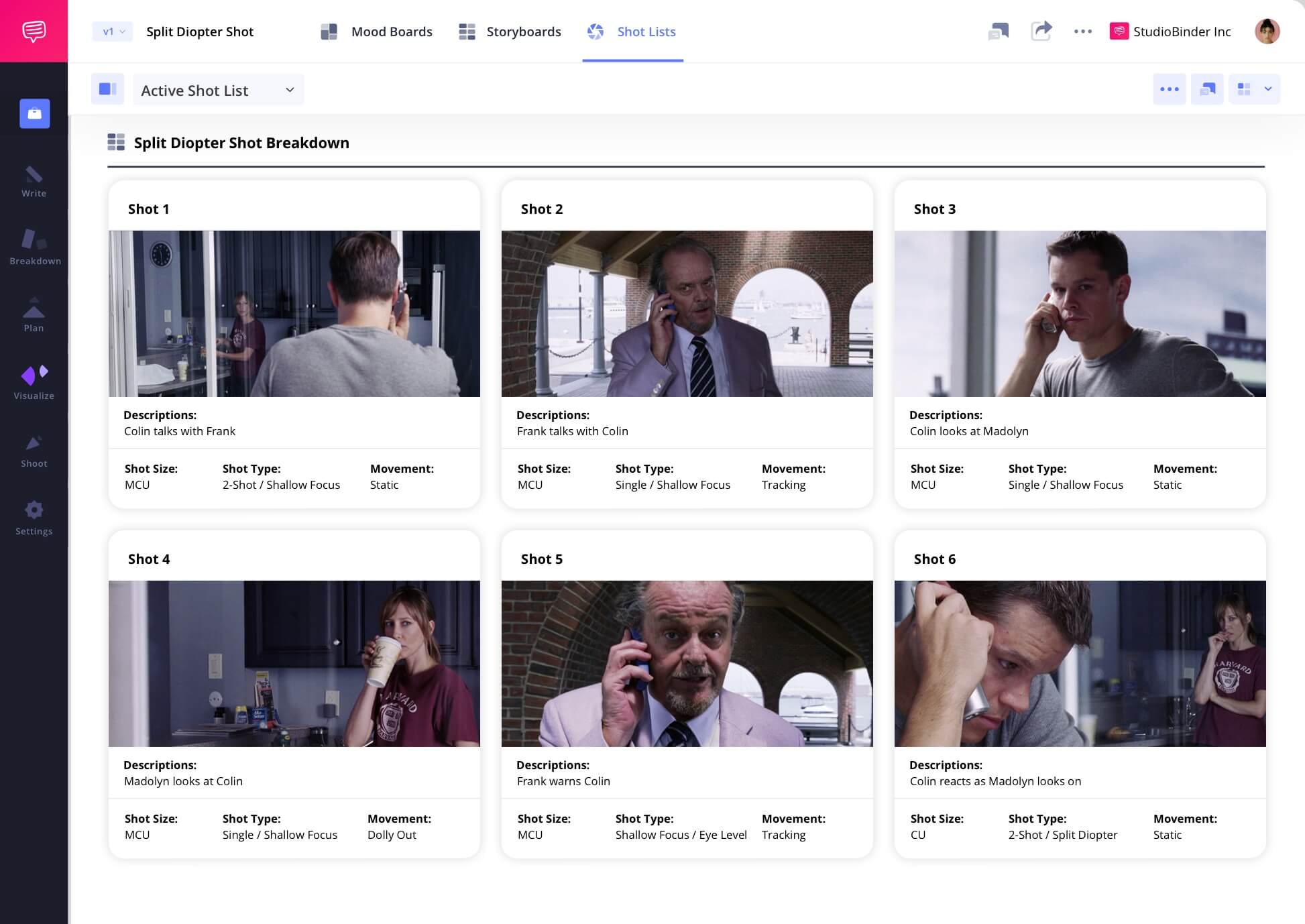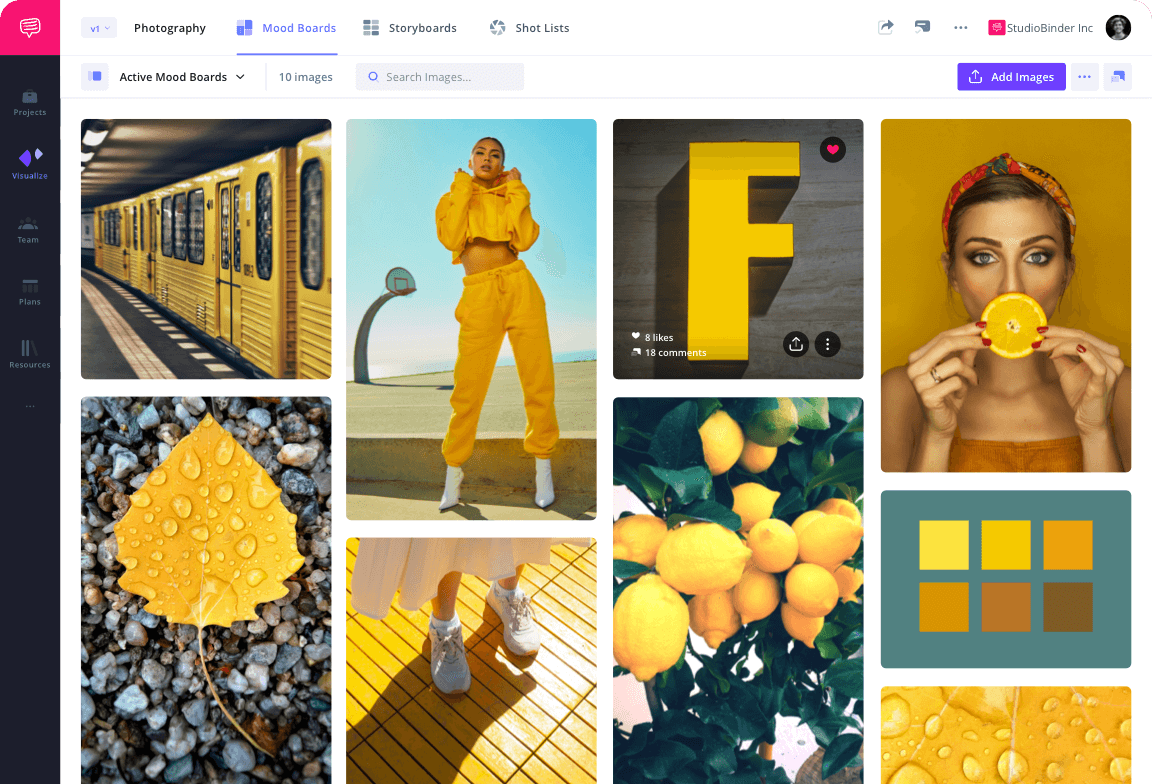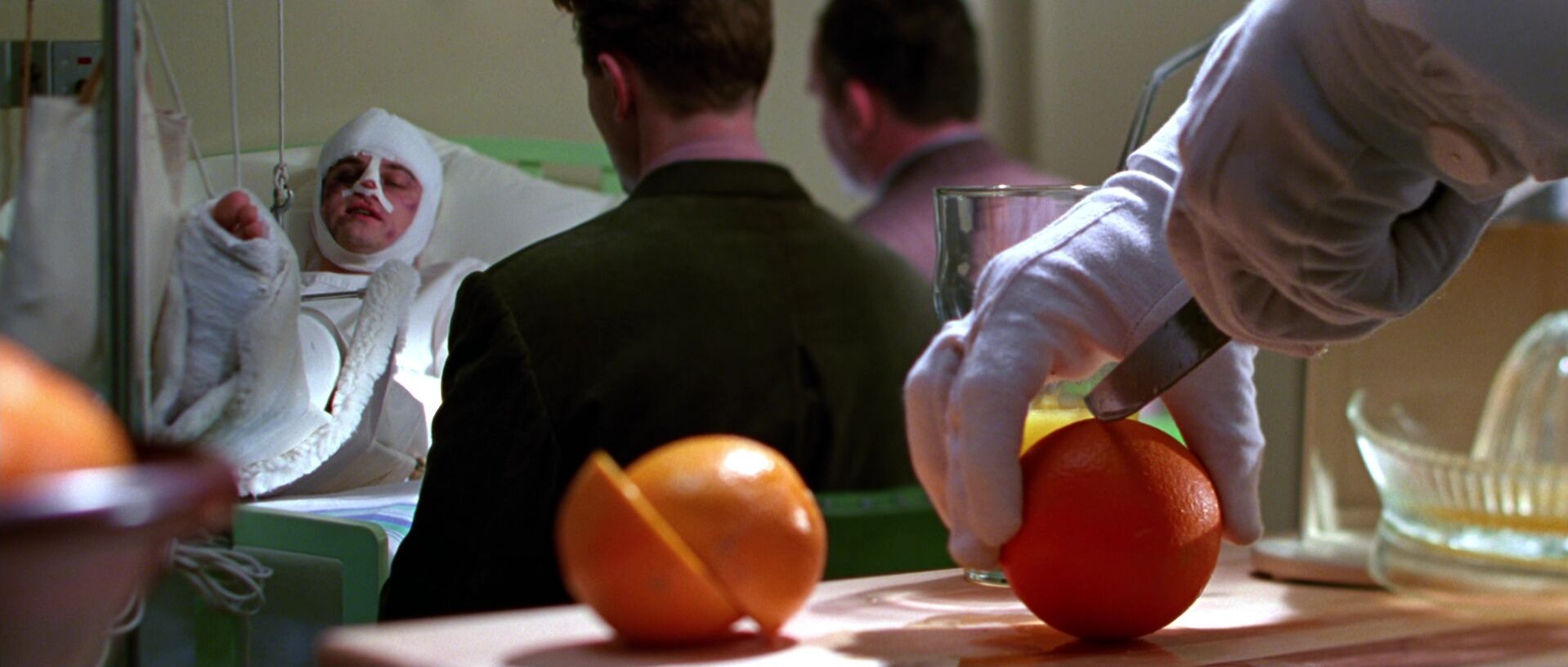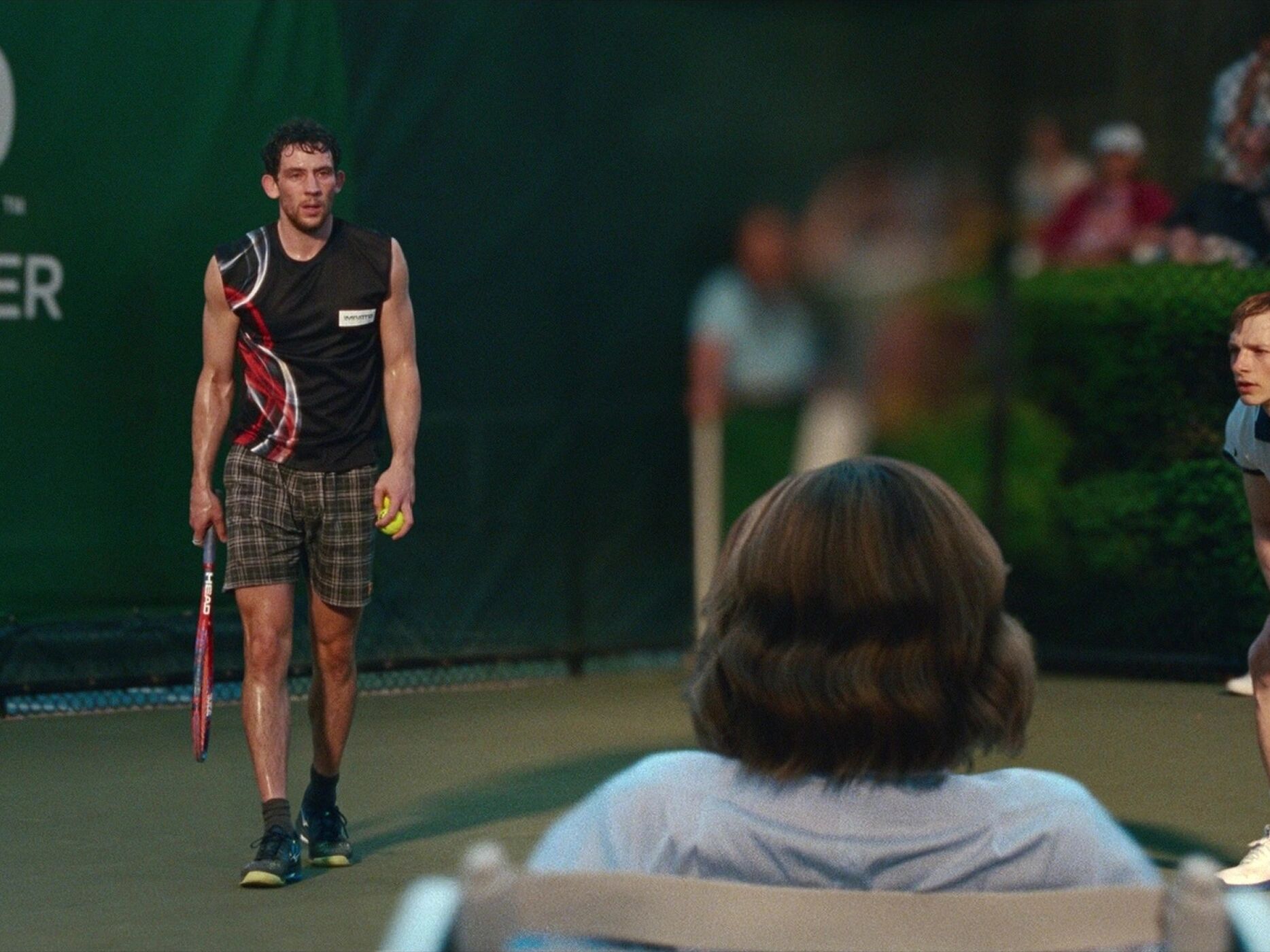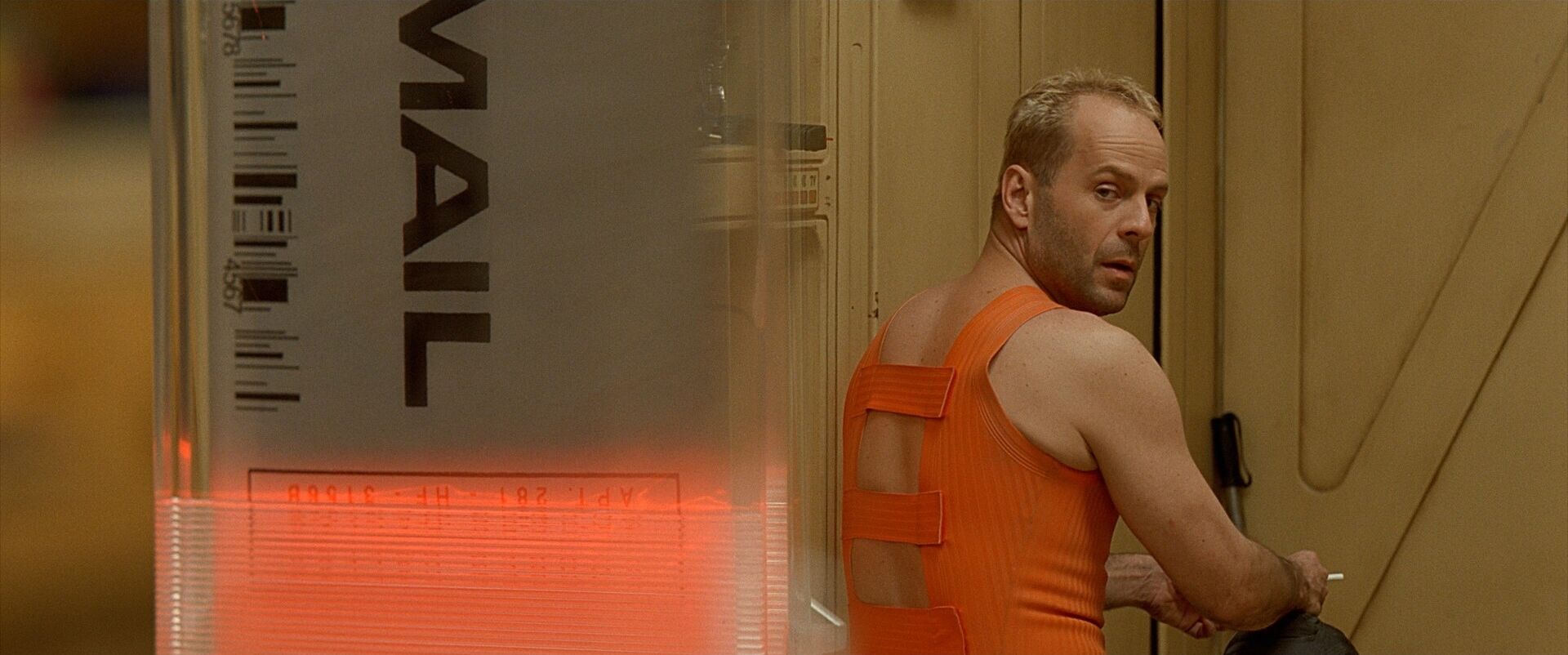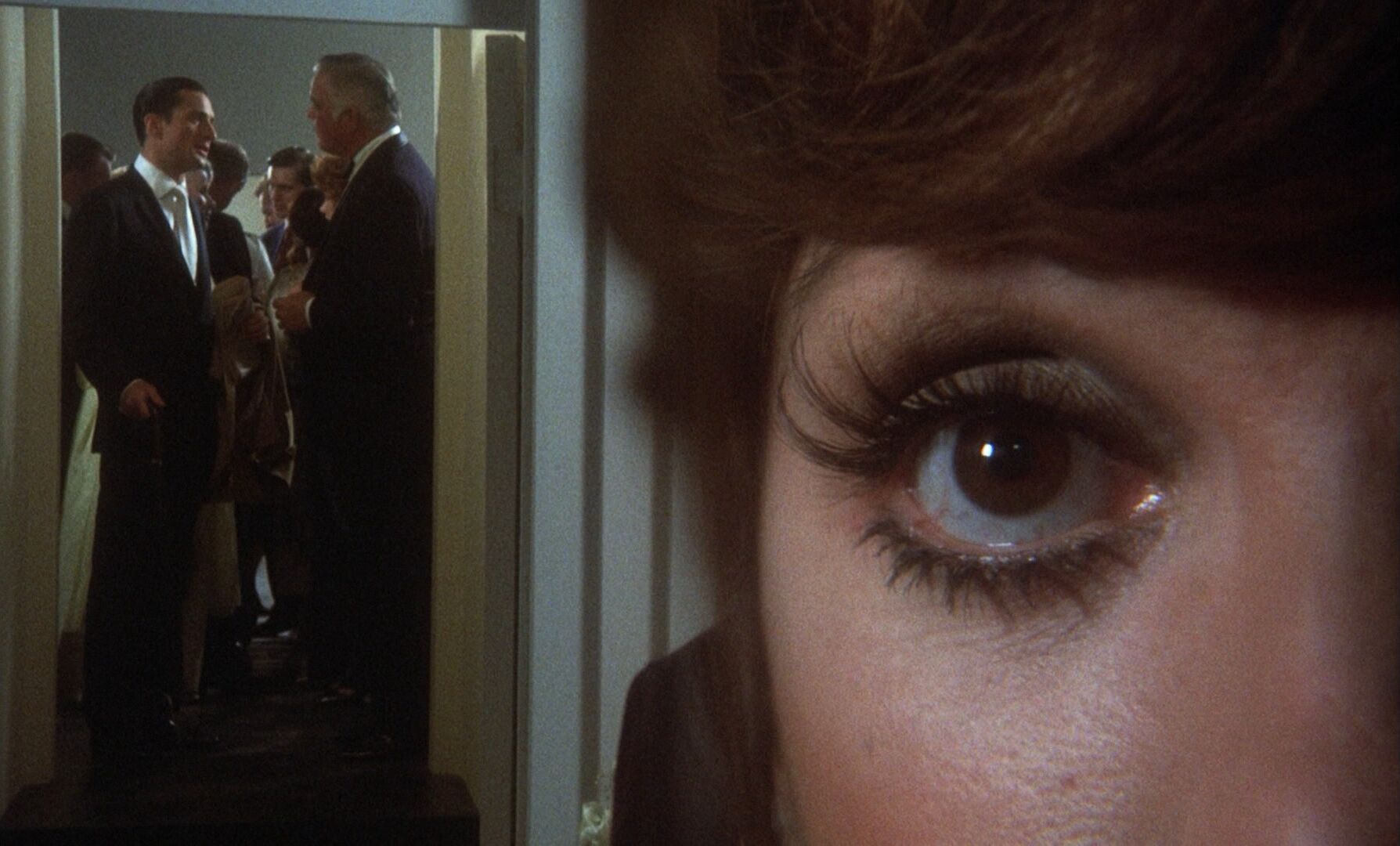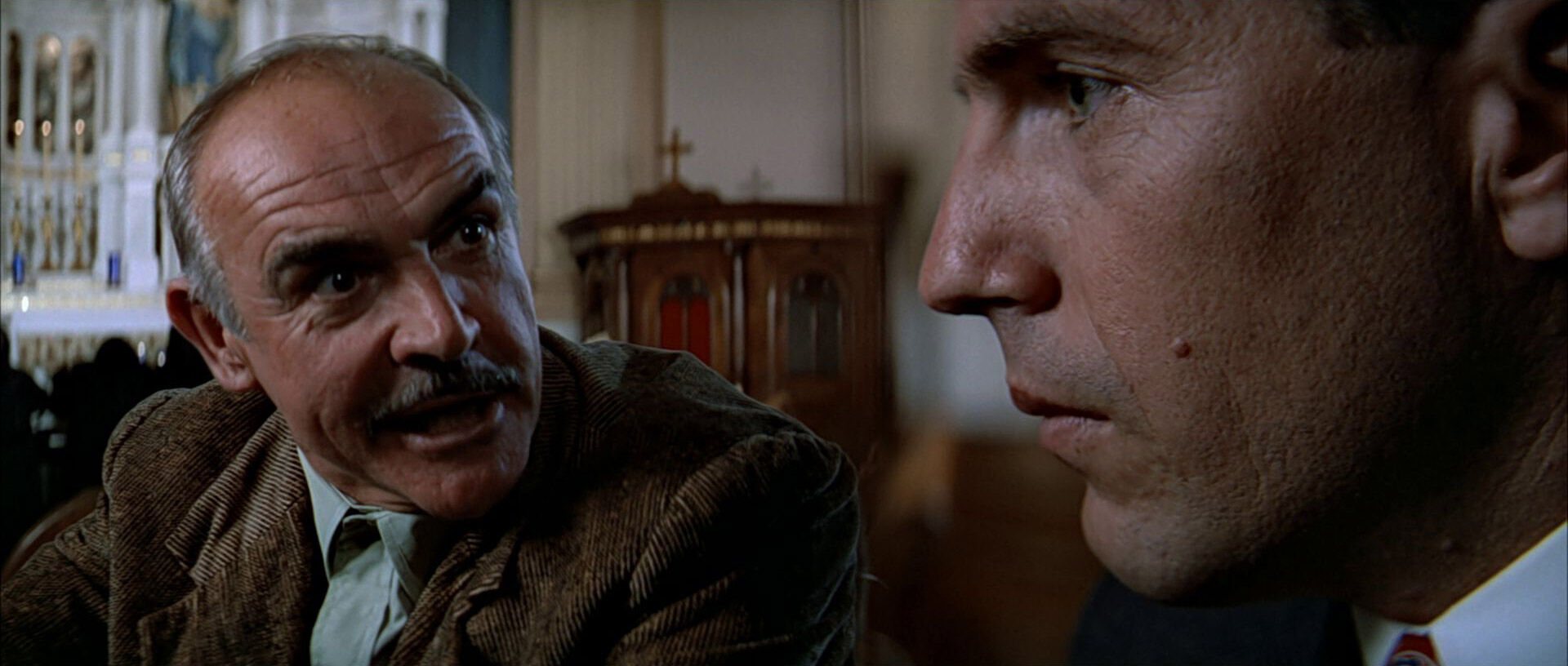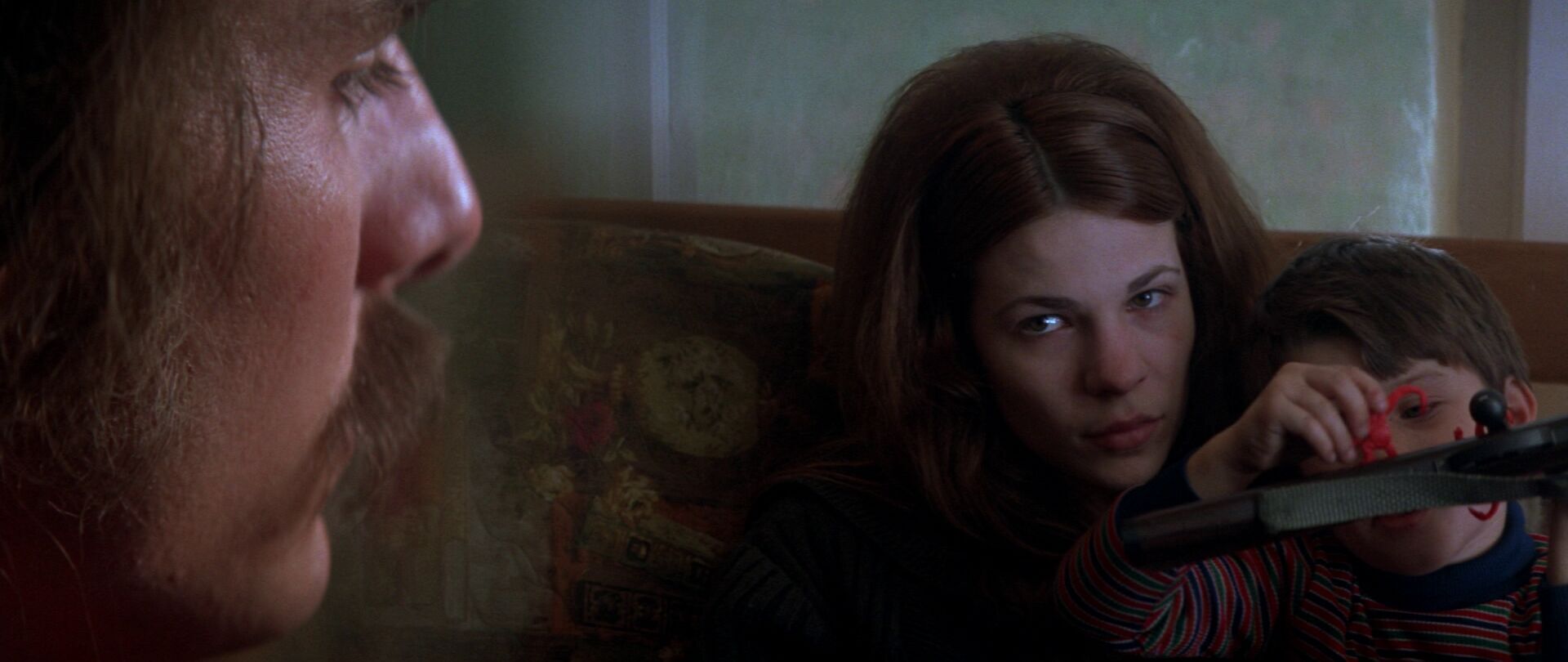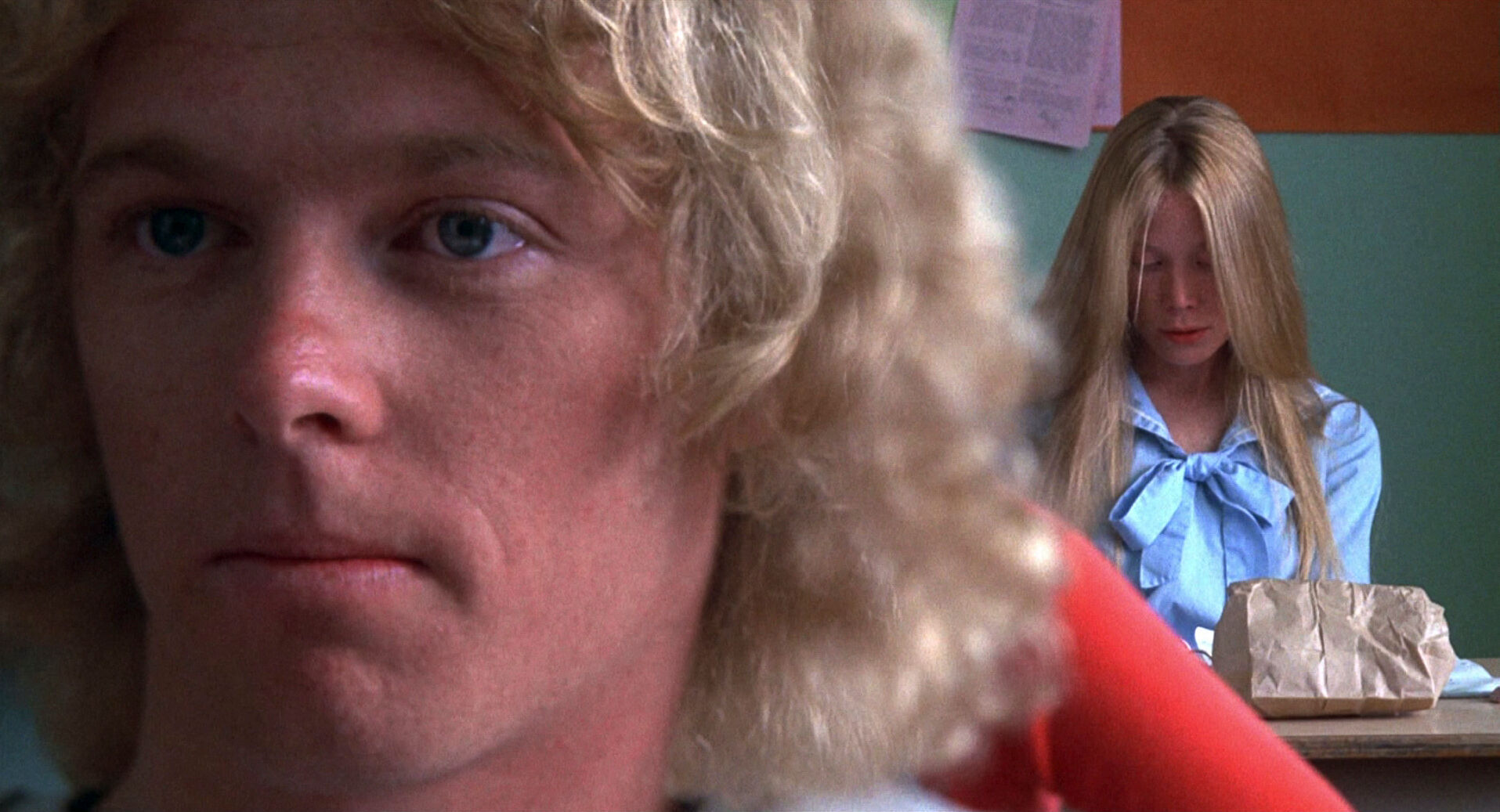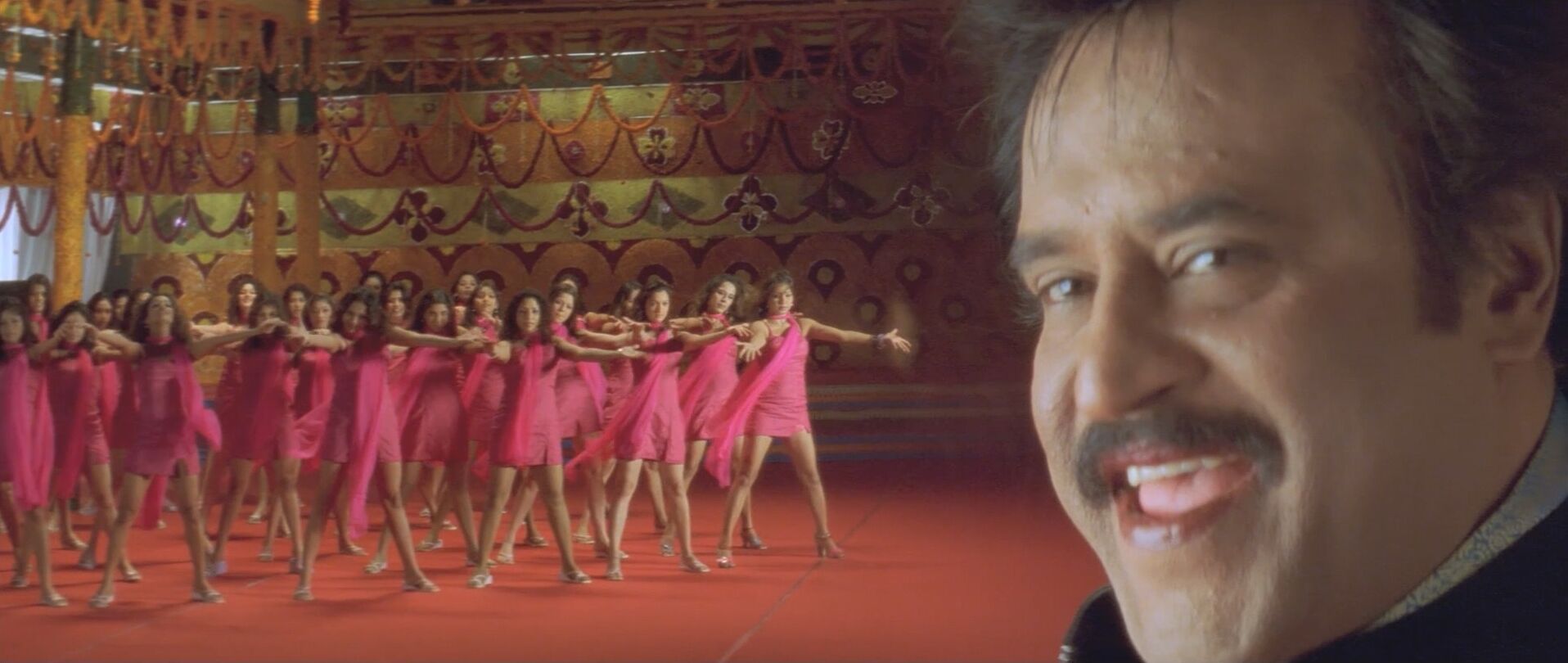home → Camera FOCUS → Split Diopter Shot
Split diopter shot definition
What is a split diopter shot?
Split diopter shots may seem intimidating, but when mastered, this unique shot can add incredible visual effects to your films. A split diopter shot, also known as a diopter shot or split focus shot, is a shot that uses a special lens attachment called a split diopter. This attachment allows the camera to keep two subjects at different distances in focus at the same time, in the same frame.
Normally, a camera can only focus on one distance at a time, so either the foreground or background is blurry. But with a split diopter, one half of the lens focuses on something close up, while the other focuses on something far away. Filmmakers can use this unique shot to show subjects at different depths without cutting between shots.
For an in-depth exploration of this technique, check out our full guide to split diopter shots, complete with examples and breakdowns.
Split diopter shot examples
Split-diopter examples
It’s helpful to see split diopter shots in action before exploring how they operate within visual storytelling. Browse this curated selection of split diopter shots to get the full range of their uses and some creative examples that might inspire your own shots.
Show subjects at different distances
Create tension between subjects in the frame
Avoid cutting to a new shot
Add a surreal look
Uses
What does a split diopter shot do?
Split diopter shots can be used for a variety of story reasons, and their unique visual effect can enhance any filmmaker’s project. Remember that these shots are "unnatural" in the sense that human vision cannot reproduce this effect, which makes using it potentially disruptive for the audience.
Keep continuous shots
Split diopter shots avoid the filmmaker needing to cut between angles, which can help a scene feel more fluid and cohesive by keeping it all in one shot.
Show contrast
The split focus of a split diopter shot can highlight a conflict between two characters in the frame, or highlight their differences or similarities.
Show two subjects at once
The split diopter lens allows characters that are close and far away to be shown in clear focus in one shot, creating a visual connection between them.
Create unique visuals
The split diopter effect can give the scene an unusual appearance that adds variety to a film. This works especially well for stylized films and music videos.
Split diopter shot meaning
Split diopter shots vs deep focus shots
Split diopter shots and deep focus shots are similar. They both capture subjects at different distances in focus, but they do so in very different ways. A split diopter shot uses a special lens attachment that allows the camera to capture an object in the foreground and one in the background in sharp focus.
On the other hand, a deep focus shot keeps everything in the frame in focus without using any special lens attachment. Instead, the cinematographer uses camera settings like a small aperture, strong lighting, and a wide-angle lens to create the desired effect.
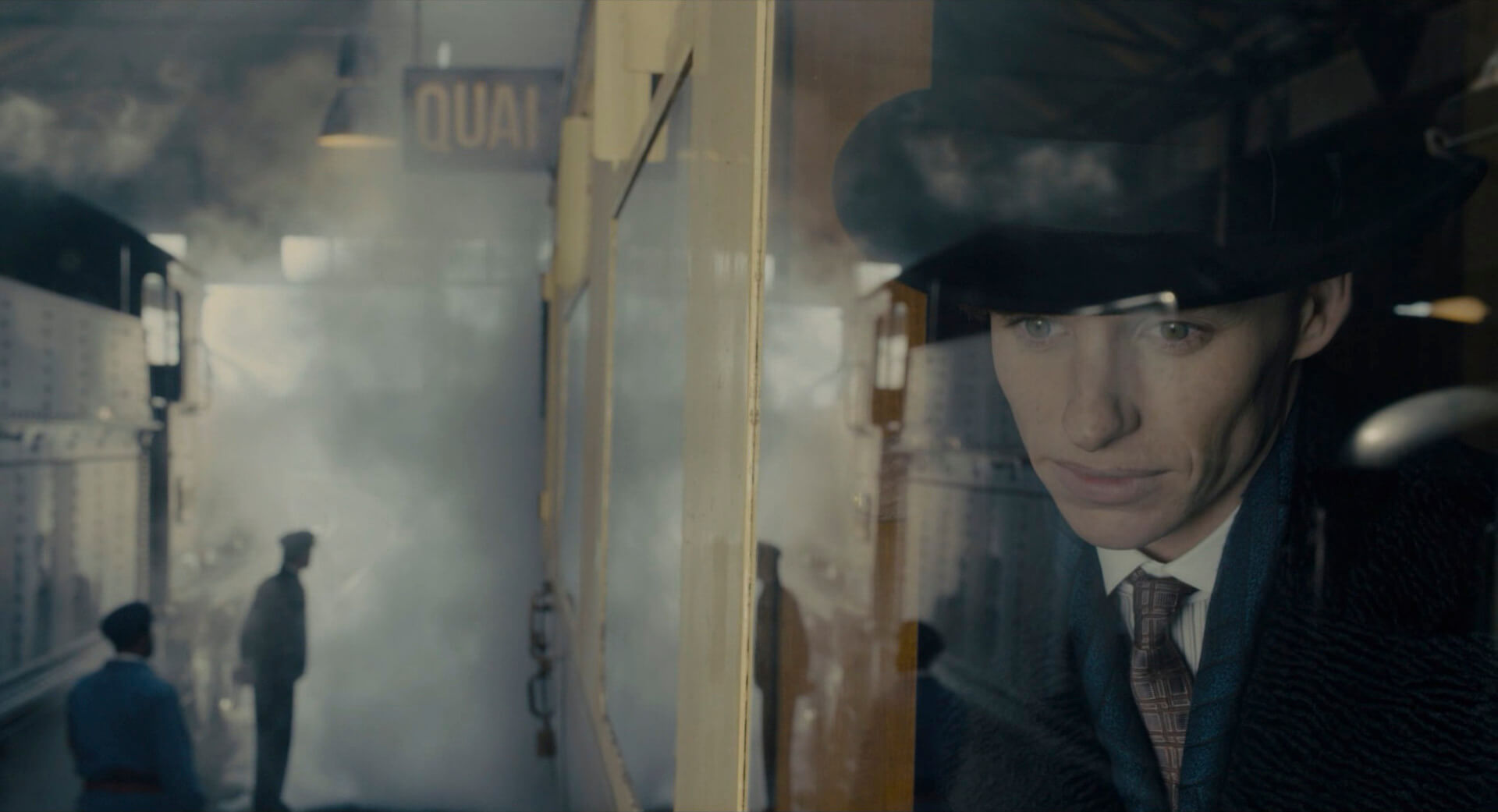
Case Study
Shot listing a split diopter shot
Director Martin Scorsese has employed many unique shots in his career, from the Snorricam to step printing. In this scene from The Departed, the split diopter is used to great effect. Notice how the pressure around Colin is applied between his personal life and his criminal life. Scorsese underscores that visually with the last shot in this scene.
Click the shot list below to take a closer look at the entire scene.
Split diopter shots allow a filmmaker to focus on both a far away and close-up subject with sharp focus, and combining this effect with other techniques can enhance the visual language of any story.
Unexpected combos
How can you use a split diopter with other camera techniques?
How to combine a split diopter shot
Split diopter shots are a versatile addition to any filmmaker’s visual language. While impactful on their own, they gain even more power when paired with other techniques. Here are some creative ways split diopter shots can be combined with different cinematic approaches:
- Wide shot: A filmmaker can use a wide shot to establish the scene, then follow a subject with a split diopter to highlight two characters at once, creating a visual connection.
- Close-up: By going from a split diopter shot to a close-up, a filmmaker can establish a relationship between two subjects first, then focus on one intently.
- Tracking shot: Starting with a split diopter and then moving into a tracking shot can be a great way to shift from a tense, still moment to an action-packed one.
- Insert shot: After using a split diopter to show two subjects, cutting to an insert shot can direct the audience’s attention to a specific detail that matters to the subject’s relationship.
- Match cut: This creative shot combination involves using a split diopter shot to show two contrasting elements, then transitions to a match cut - a shot that matches the composition, shape, or movement of the previous shot - to link ideas between scenes.
Frequently asked questions about the split diopter shot
A split diopter shot allows a close-up and a distant subject to be in sharp focus at the same time.
A split diopter filter lets the camera focus on two different distances at the same time.
Split diopters aren’t used much because they can be difficult to set up. But they also create an "unnatural" image, meaning that the human eye cannot focus on two separate planes at once so it can be distracting for the audience and pull them out of the film.
To do a split diopter shot, you a split diopter filter on your camera that lets one side of the shot focus on something close, and the other side focus on something far away.
A split diopter lens is a lens attachment that allows two different distances in the same frame to be in focus at once. This is done by combining a close-up lens on one half with a regular lens on the other.

